
Director of Photography, Filmmaker and Editor Hopi Chapman
Director of Photography, Filmmaker and Editor Hopi Chapman
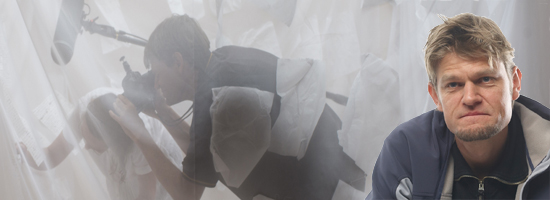
Christopher Robin Hopi Boomerang Chapman is his full name but he is normally called Hopi Chapman. We met Hopi on Facebook some years ago and later alive at the #RIO2016 Olympic Games. This Director of Photography, Filmmaker and Editor works in the South of Brazil at Flow Filmes. But his heritage is from Amsterdam, the Netherlands. He spoke very well english, so we invited him for our blog to listen to his adventures and projects in Brazil and elsewhere.
BB: How long have you been working in the TV business?
Hopi: Firstly I studied Cinema and TV at the University of Amsterdam. Then I worked as a trainee for a local TV station called Belissima TV, doing script, camera, directing and editing of short videos. Thereafter I worked two years for the Amsterdam TV station “AT5” as a cameraman for a sports program. As a freelancer I filmed and edited a lot of commercial videos, for the perfume chain Douglas but also a video about the national liberty day, and a music event in Amsterdam visited by fifty thousand people.
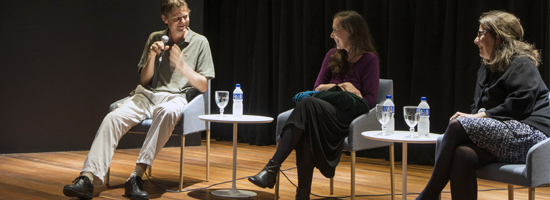
Hopi commenting a documentary at the screening 2014
I have been In Brazil since 1999. For one year I worked as a cameraman and editor for a fashion program and an extreme sports program. Then I worked for two years for an advertisement agency, making commercials, filming, editing and directing. Here I learned a lot about how advertisement works. I made a lot of political advertisements too, participating in six political campaigns as a cameraman and an editor. And I started to give editing lessons in Adobe premiere and After Effects. The last 7 years I made a lot of documentaries funded by the state and the Brazilian government.
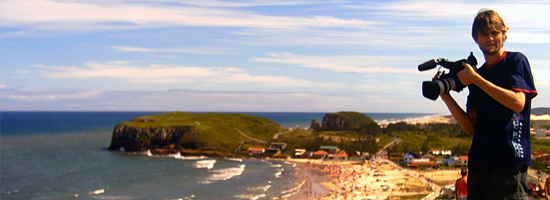
Making a film for an organization of bankworkers and their vacations in the south of Brazil, RS, SC, PR and SP
BB: Is communicating in the english language important for your job?
Hopi: Working in Brazil, mostly I do not use English although I did a few important jobs with Dutch and American people when English was fundamental to do the job. Speaking English is important in our business.
BB: On location at international events, is it difficult for you to talk with Brazilians ?
Hopi: It is not difficult for me to speak with Brazilians because I have lived for 19 years in Brazil. I speak Portuguese very well.
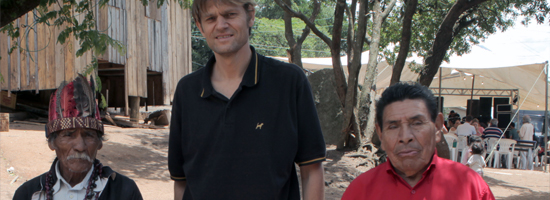
BB: Did you see a growth past years in international events in Brazil?
Hopi: Yes I saw a growth of international events like the Olympic Games and the FIFA World Cup soccer.
BB: What did this mean for your business?
Hopi: I worked on both events. During the World Cup I worked for a Dutch television company in Porto Alegre and the Olympic Games in Rio de Janeiro for Connecting Media who produced live webcasts for Facebook USA. It was great to be part of a crew that promotes these events to a lot of people.
BB: How was your job at the Olympic Games 2016 in Brazil?
Hopi: It was a nice job and great experience working together with Connecting Media for a company like Facebook and NBC. We had an international crew of Brazilian, American, Australian and Dutch crew members and it worked very well together.
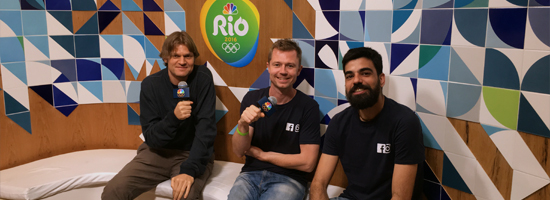
Camera for live webcast facebook at Olympic Games 2016 for ConnectingMedia
BB: Do you work besides Brazil also in other regions on the planet or do you have plans for that?
Hopi: I worked in a lot of places in Brazil, Uruguai, the Netherlands, Germany and Spain but for now I have no plans to work in other countries.
BB: Are there any surprising challenges you had at events past years?
Hopi: At the Olympic Games we had the challenge to transmit by Facebook interviews with atletes, comentators and special guests. And it went great. One challenge I have this year is making a tv series for TV Brasil and university tv channels, called Culturando. It is about young people of the periphery who work together in groups, creatively and productively.
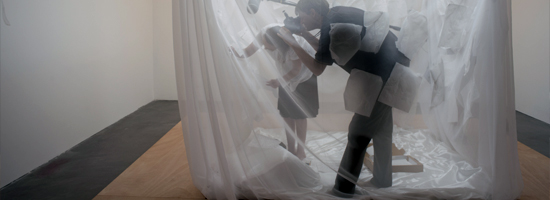
Filming and directing a documentary about the painter Karin Lambrecht
BB: You edit on Final Cut Pro. Do you still use it or did you update to Final Cut Pro X, Adobe Premiere, Davinci Resolve or AVID?
Hopi: I was only editing on Final Cut Pro for the last 10 years, but this year, after upgrading, my Mac did not accept it any more. I am using and Premiere CC a lot and I like it very much. It exceeded my expectations.
BB: Do you plan to learn other solutions, for example AfterEffects, Fusion or Apple Motion?
Hopi: I also use AfterEffects and give lessons in both After Effects and Premiere CC nowadays.
BB: Did you attended Exhibitions this year like SET EXPO, Church Expo, IBC or AES Brasil?
Hopi: This year I went to the Rio Content Market exhibition. It is a good opportunity to sell programs, documentaries and content to Brazilian and foreign TV Stations. There are people from all over the world.
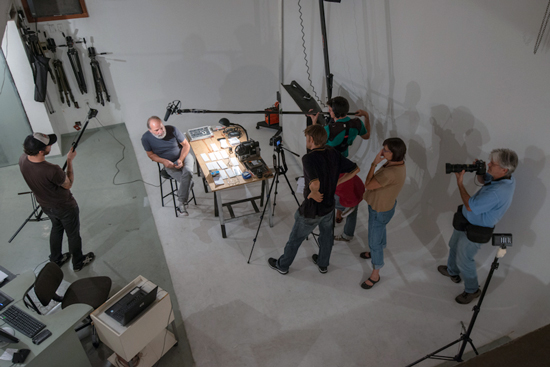
Directing and filming a documentary about a group of artists, called Nervo Óptico that is shown on channel Arte 1, TV//RS and TV Justiça
Productions made by Hopi Chapman - Flowfilms:
Kaingang Wisdom
This documentary (Full HD, 26 min, 2015) shows the lifes of two ninety-year-old kaingang Indians, one living in the city and the other in the countryside. (Produced by Flow Films)
Nervo Óptico, in search of a new eye (Trailer)
This documentary (Full HD, 26 min, 2013) shows that in Porto Alegre during the seventies a group of artists was thinking of art in a different way. The film is directed by Karine Emerich and Hopi Chapman. (Financed by the State Ministry of Culture and Pró-Cultura of Rio Grande do Sul)
Julio Plaza, the poetic and the political
This documentary shows the art of Julio Plaza. Directed by Hopi Chapman and Karine Emerich (26 min. Full HD, 2012)
Contact info
Hopi Chapman - Flowfilmes
Rua João Alfredo 312 cj. 616
90050-230
Porto Alegre/RS
Flow Films: Youtube - facebook - Flowfilms facebook page - Website
Like us if you want on Facebook, follow us on Twitter and Subscribe to our YouTube channel.
Rodolfo Souto , being a tech guy at TV Globo
Rodolfo , being a tech guy at TV Globo
We met Rodolfo Souto some years ago at the Formula 1 at Interlagos, São Paulo. He was responsible for some cabling between the international Broadcasters and the Host TV Globo. In their booth at the TV compound we found Rodolfo with his head in a rack. There was a ‘small problem’ in which he had to solve’ he said. The next morning we spoke to him again, he told us he re-cabled the whole rack overnight to solve the problem. A Die-Hard technician this Rodolfo. And…. he spoke very good english. so we invited him for our blog.
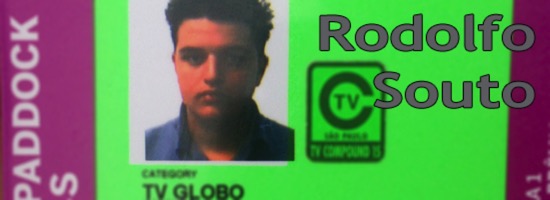
BB: Can you tell us about yourself and your job at - External events São Paulo?
Rodolfo: My Name is Rodolfo, and I`m a Technician of TV System. I am working for TV Globo since December 2006, almost 10 years now.
BB: Tell us about the company TV Globo - External events São Paulo and how long does TV Globo - External events São Paulo exist?
Rodolfo: The External team of Events in São Paulo exists since 1975 i think. The first soccer game that the External events team broadcasted was with only 3 cameras, the signal output were a Analog MicroWave route between the Soccer-Stadium and TV Globo in São Paulo. The guys that worked on that production time are still very proud of what they achieved those days.
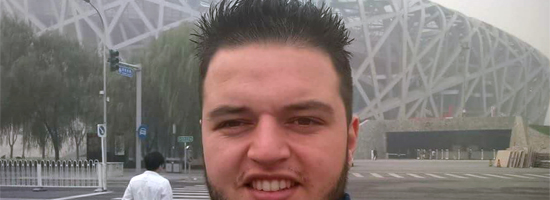
BB: Did you see a growth past years in working at international events for you in Brazil?
Rodolfo: Yes a lot. I Worked at productions like the Confederations Cup, the World Cup in 2014 and this year i will be at the Olympic Games in Rio de Janeiro. Aldo, i worked on the last 5 Formula 1 GrandPrix’s at Interloagos in Brazil.
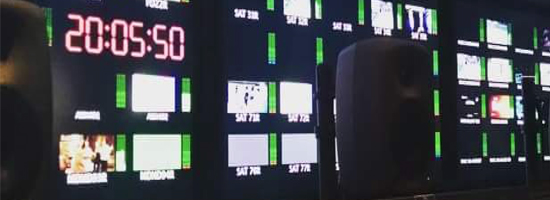
Our OBvan at TV Globo is one of the top of Latin America. I can see that after all this years Broadcast production are getting bigger and harder to achieve in the technical sense. I like that, it makes me feel good when i am working on an International Event, meeting colleagues from all over the planet and being able to talk with them.
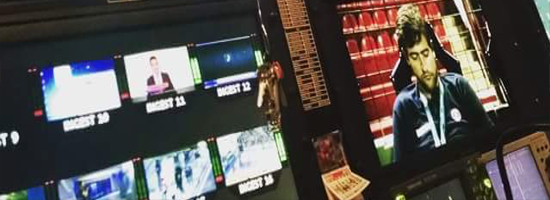
BB: What this growth ment for you and your colleagues at TV Globo - External events?
Rodolfo: TV Globo has 5 department: Rio de Janeiro, São Paulo, Belo Horizonte, Brasilia and Recife. When we have something new coming for us, normally it starts in Rio and São Paulo. So we get a lot of time to learn and understand the new technology, equipment and solutions. This is very well arranged at TV Globo.
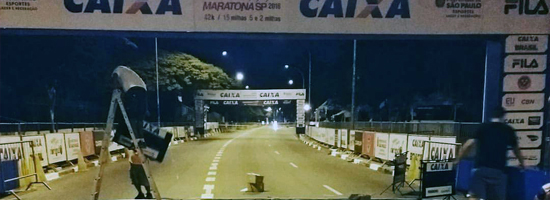
BB: Do you work besides Brazil also in other regions on the planet?
Rodolfo: Yes i did. In 2014 i went to China and also Singapore. The Brazilian national team played 2 friendly games over there. I spent even 12 days on this location job. It was amazing meet the other side of the world. In 2015 i went to Colombia to broadcast a Corinthians`s game at the Libertadores championship. That was awesome too. Speaking English is very important on International events. It was because of the english that i got this opportunity to go to China and Singapore. Knowing the english language did give me this opportunity.
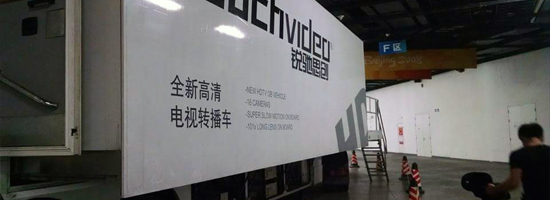
BB: On location at international events, is it difficult for you to communicate with Europeans, Americans, Australians or LATAM countries?
Rodolfo: Yes, with the LATAM’s i try to speak in Spanish but especialy with the Argentines it is hard. They speak to fast. With the Europeans it is alright, they speak very well english. It is only boring for me when they speak their own language. I do not understand anything they speak than. I worked with Australians at the World Cup in Sao Paulo, that was ok too. At the Formula 1 i speak a lot with the British guys. For me it is kind hard, to understand them. It is because i studied American English, so it is hard to get used to understand their they speak english, but in the second day everything goes already better. Every time you learn.
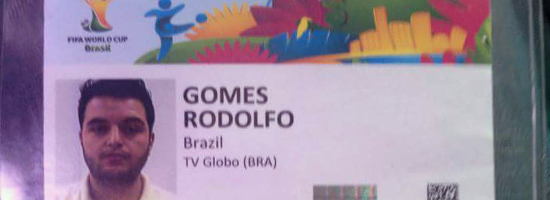
BB: How do you see your job due to Olympic Games 2016 in Brazil?
Rodolfo: It will be awesome for sure. We will never see an event like this in Brazil soon again. I am very excited to be part of this event. I will be working at Arena Corinthians in São Paulo working for the OBS. It will be unique experience, my expectation are the best you can imagine.
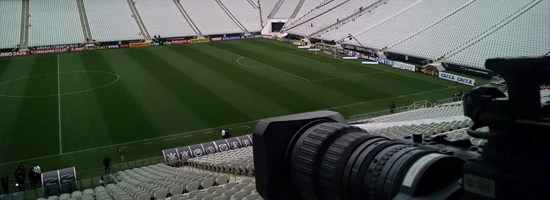
BB: Is there any surprising challenges you had at events past years?
Rodolfo: No, not really. We always have something new popping up every day in this kind of job. After some years i got used to all types of bad and good surprises. The challenges make us better and stronger. Things that i learned on International events i carry with me at every other production i do, in Brazil and abrought.
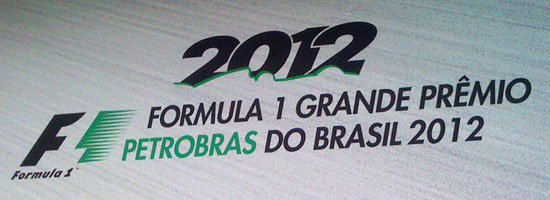
BB: What surprising challenges you think you will have at the Olympics this year?
Rodolfo: I think that we will have all the possible surprises thinkable. We will be the Host Broadcaster at the Olympic Games. All the broadcasters in the world will come to us to ask for some signals or assistance. A lot to solve and help fur sure.
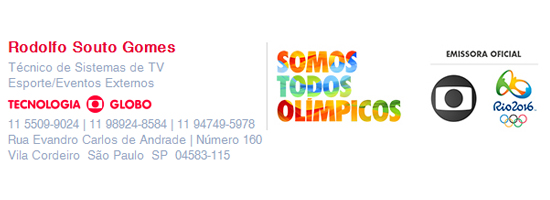
Video Olympic Games (Official Theme) - Rio 2016:
Like us if you want on Facebook, follow us on Twitter and Subscribe to our YouTube channel.
mentioned:
Globo TV: website
PANORAMA AUDIOVISUAL 2015
FAIR AND CONGRESS: PANORAMA AUDIOVISUAL 2015
May 2015 in São Paulo Expo (formerly Centro de Exposição Imigrantes), will occur the biggest event in the Broadcast & Cable segment in Latin America. The previous edition, in 2014, showed growth and maturity of the digital audiovisual market, with over 100 hours of training and more than 90 conferences related to the digital audiovisual industry, with over 1000 participants at the event.
Panorama Audiovisual is aimed at creative professionals, production and distribution of audiovisual content on the platforms like TV, film, radio, broadband, mobile and new media.
Since selecting a tripod for cameras, exhibition systems to transmission, Panorama Audiovisual works to provide qualified information which assist professionals in technical choices and equipments that ensure the best results.
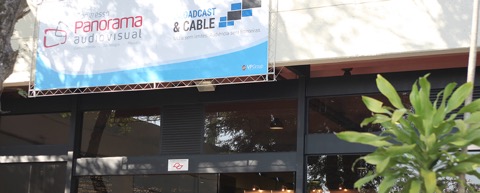
The congress offers reports, dossiers, analysis and interviews brought by professional experience, sucsess stories and reviews of new and basic technologies, with firsthand news.
Panorama Audiovisual is an editorial product of VP Group Integrated Communications, a company based in Alphaville (Barueri/SP, Brazil) and office in Miami (Floria, US) and Madrid (Spain). This structure allows the publishing of magazines and websites - world leaders in the segment, according to Google Analytics - covering Latin America and the Iberian Peninsula.
The president and CEO of VP Group said -- "This finding has encouraged us to expand the scope of the events we do, distributing them throughout the year."
The mission of the congress is discuss technologies and strategies that moves the Brazilian's audio and video market. Since the selection and operation of cameras and editing software to media monetization, every niche of this market will be treated in various discussion sessions, workshops and tutorials of the event this year. "In 2015, we will expand further this debate and the training and professionalisation programs", says Fernando Jay, director of the event.
"Therefore, it is fundamental an event like this, which encourages the professionalism of the entire industry and opens opportunities of updates and training for sector professionals to follow the latest trends of this innovative and dynamic market", says Victor Piiroja, President and CEO of VP Group.
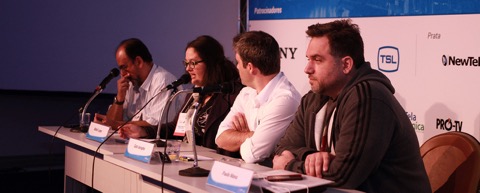
The main themes of the congress, dedicated to professional development and promotion of new technologies, will be solutions for production and distribution of audio and video on TV, film, new media, advertising, animation and games.
Among the topics, the themes are:
• Migration to 4K, H.264 and HEVC;
• Cameras and Lenses for Digital Production;
• Resources for Digital Cinematography;
• Recording in Multiple Codecs and Resolutions;
• Editing and Post-Production Systems;
• Color Correction and VFX;
• Applications for HDR and HFR;
• Automated Production of Journalism and Sports;
• Coverage of Competitions and Shows;
• New Lighting Technologies;
• Generation of Graphics and Virtual Sets;
• Integration with Social Media;
• Storage and Restoration;
• Media Management and Big Data;
• Cloud Based Services;
• TV Everywhere: Multiplatform Distribution, IPTV, VOD and OTT;
• Broadband and Pay TV;
• Infrastructure and Network Planning;
• RF Transmission, Satellite and FO;
• Quality Control and Signals Monitoring;
• Infrastructure for Technical Centers;
• Processing, Conversion and Playout;
• IP Based Production;
• Dispute of the Spectrum and the future of Broadcast;
• Analog Switch-Off and Digital TV Expansion;
• Radio in a scenario of Media Convergence;
• Interference and Wireless Networks;
• Transmedia, Connected TVs, APPs and Second Screen;
• Acoustic and intelligibility;
• Capture and Multichannel Audio Mixing;
• Immersive Audio;
• Loudness Control in Broadcast Ambience;
• Digital Cinema and VPF;
• Digital Projection Technologies;
• Education and Innovation;
• TV Series, Webseries and Interactive Narratives;
• Games and Animations;
• New Sources of Revenue;
• Incentive Laws and Fundraising for Audiovisual.
The existing sectors during Panorama show 2015 will be: Open TV, Pay TV, IPTV, Wireless Media, Radio, and Internet and streaming, Telecommunications, Satellite, Broadcast-cable, Digital Cinema, IT, 3D, Digital Signage, Education and Training
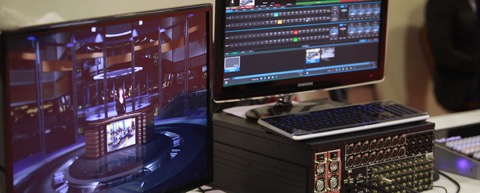
You can watch some videos of what happened in the previous edition:
We would like to thank Marcel Almeida for writing for us.
More info you can find on his LinkedIn: br.linkedin.com/in/marcelmg77/en or follow him on Twitter @marcelmg77
So we hope this is, besides, fun to read, also a good help and insight information about broadcast events held in Brazil and what the future may hold.
Like us if you want on Facebook, and follow us on Twitter
mentioned: